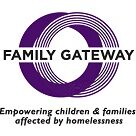Jul 5, 2023- Dallas Morning News- Jason Beeferman
The mayor-appointed group recommended the loosening of zoning laws to increase affordable housing, as well as 16 new street outreach workers in a recent report.
A Dallas task force on homelessness is recommending increased funding and the loosening of zoning and construction regulations to reduce the number of unsheltered individuals in the city.
The recommendations come as Dallas is grappling with an unsheltered homelessness population that has jumped from 242 to over 1,300 — an increase of 437% – since 2014, according to two studies referenced in the group’s report, which was released Friday.
The task force, labeled HOPE for its work with homelessness, organizations, policies and encampments, said there is a need for affordable housing to be built across the city’s 14 districts.
“We can’t be opposed to having people sleeping under our bridges, but also be opposed to them coming inside,” said Ellen Magnis, a co-chair on the task force and the president and CEO of homelessness nonprofit Family Gateway. “We’re going to have to do everything we can to help more people.”
The report also advocated for the city to fund 16 new street outreach workers. The workers, employed by nonprofits but funded by the city or county, would be responsible for going into encampments and encouraging homeless individuals to move to shelters.
Creating those new positions is “a very tangible way [to achieve] visible results in the reduction of unsheltered homelessness,” Peter Brodsky, co-chair of the task force and the board chair of Housing Forward, said.
HOPE., created by Mayor Eric Johnson in February, met weekly over the course of four months, the city said, and was made up of city leaders from diverse areas of expertise, such as economic development and mental health.
The task force focused its efforts on reducing the number of unsheltered homeless individuals, or people who reside in places not meant for human habitation. Unsheltered homeless individuals represent only a portion of Dallas’s total homeless population.
Magnis said that Dallas’s unsheltered population has risen at a rate not seen in other cities over the last decade, which she attributes to the “drastic shortfall” in housing units for low-wage residents. In Dallas, there is a shortage of 33,660 rental units for individuals making at or below 50% of the area median income, a 2023 Child Poverty Action Lab report found. Those with the top 50% of incomes have no shortage, the report noted.
Currently, the city has zoning rules in place that allow shelters to increase capacity during inclement weather, like excessive heat. Magnis and the task force wants to temporarily allow shelters to increase capacity no matter the weather, because the crisis of unsheltered homelessness in Dallas is so severe.
The group also recommended the city loosen construction and building regulations — such as streamlining the construction permitting process or easing permitting rules — “without compromising safety or quality.”
City funding toward housing and homelessness also needs to increase, the group said. While it didn’t list a specific amount or source, the group eyed Dallas’s 2024 bond program as one way to increase funding for homelessness.
“We’re never going to solve this problem without significant investment, and we’re never going to have the dollars to invest without bond proceeds,” Brodsky told The Dallas Morning News.
Last week, a separate group of nonprofits and local businesses launched the Dallas Housing Coalition, a consortium advocating for greater investment in housing and homelessness in the May 2024 bond, and less toward “potholes and parks.” If approved by voters, the city’s proposed $1 billion bond program would provide $550 million toward streets and parks and $100 million for housing and homelessness, under current plans. According to the coalition, those figures don’t do enough to address the widening gap between lower-income residents and a strained housing supply.
“We’ve come together because Dallas has become unaffordable for so many,” said Ashley Brundage, a vice president of the United Way of Metropolitan Dallas and a member of the coalition. Brundage noted how the median income in Dallas is $58,200, but the average home price is $405,000.
HOPE also recommends two city homeless advisory groups should be dissolved to reduce redundancy. Magnis said the mayor should consider “sunsetting” the Citizens Homeless Commission and the Dallas Area Partnership because the groups’ work overlaps with a host of other county and city commissions focused on fighting homelessness.
“We did not come at those recommendations lightly,” she said, adding the suggestion was made based on three years of meeting minutes and interviews with group members.
The recommendations are by no means guaranteed to be adopted by City Council, but the mayor-appointed task force ensured that its recommendations were actionable and realistic for the council.
Click here to read the full story.
